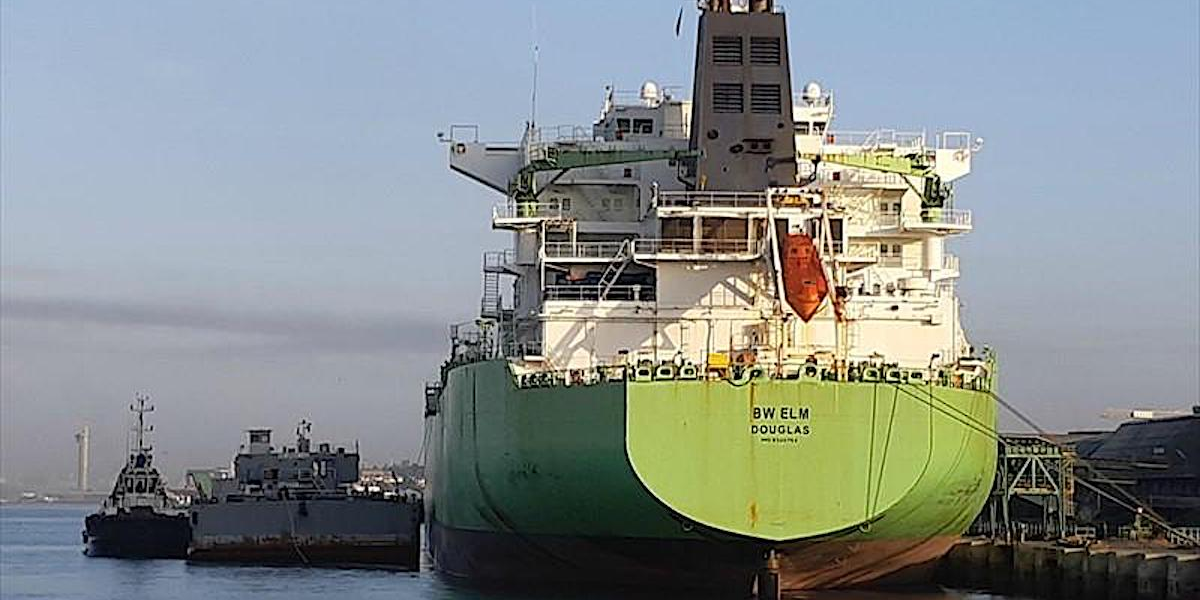- The UK-flagged oil tanker BW Elm passed through the Strait of Hormuz on Tuesday and Wednesday, even though Britain warned ships to avoid the waterway amid Iran tensions.
- The BW Elm is the first British-flagged ship to traverse the strait since the UK issued those warnings.
- HMS Montrose, a Royal Navy vessel, shadowed the ship but did not offer a direct escort, a spokeswoman for the BW Elm’s operating company told Business Insider.
- Britain issued the travel warnings after Iran’s Revolutionary Guard seized the Stena Impero, a British-flagged ship, last Friday. The Stena Impero remains stranded in Iran.
- Visit Business Insider’s homepage for more stories.
A British oil tanker ignored the UK government’s warnings and boldly crossed the Strait of Hormuz amid the country’s spiraling tensions with Iran.
BW Elm became the first British tanker to pass through the strait after Iran’s Revolutionary Guard seized the UK-flagged Stena Impero last Friday.
The Isle of Man-flagged ship arrived in Mesaieed port, eastern Qatar, early Wednesday morning, according to vessel tracking site MarineTraffic.com. It started its journey through the strait on Tuesday.
A spokeswoman for BW LPG, the Singapore-based company that operates the vessel, confirmed the ship’s location and said it was the ship’s original destination in a phone call with Business Insider.

British naval vessel HMS Montrose closely shadowed the BW Elm as it traversed the strait, but did not provide it with a direct escort, the spokeswoman also confirmed.
The BW Elm's journey was first reported by Lloyd's List, a British shipping news journal.
The UK warned its ships to avoid the Strait of Hormuz after the Stena Impero's capture last Friday.
The Department for Transport raised the security threat level in the region to its highest level over the weekend, and requested that all British-flagged ships avoid Iranian waters and, temporarily, the entire strait. The Strait of Hormuz comprises Iranian, Omani, and international waters.
It's not clear why the BW Elm did not heed UK government warnings. Business Insider has requested comment from BW LPG.

The Strait of Hormuz, a narrow waterway between the Persian Gulf and Gulf of Oman, is vital for the global shipping industry.
Vessels transport some 21 million barrels of oil from the region to the rest of the world every day. That's about one-third of all seaborne oil, and one-fifth of all global crude oil.
Tensions in the strait have risen sharply in recent weeks after a series of incidents.
Last week a US Navy ship shot down one - perhaps two - Iranian drones in the strait, President Donald Trump and other Washington officials said. Tehran has repeatedly denied this.

Tensions heightened further when the Stena Impero was captured Friday. The ship and its 23 crew members remain in Bandar Abbas, a port city in southern Iran.
Stena Bulk, the company operating the vessel, on Wednesday said the crew is "safe with good cooperation with the Iranian personnel onboard."
Tehran released footage of what it says is the crew cooking and talking on board earlier this week, in an apparent effort to show that the crew was unharmed.
Jeremy Hunt, Britain's foreign secretary, on Monday said the country would deploy a Europe-led "maritime protection mission" to safeguard shipping in the strait to avoid Iranian hostilities. Tehran has consistently opposed "foreign" presence in the region.
Hunt noted that the European mission is not part of the US's "maximum pressure" strategy on Iran.

